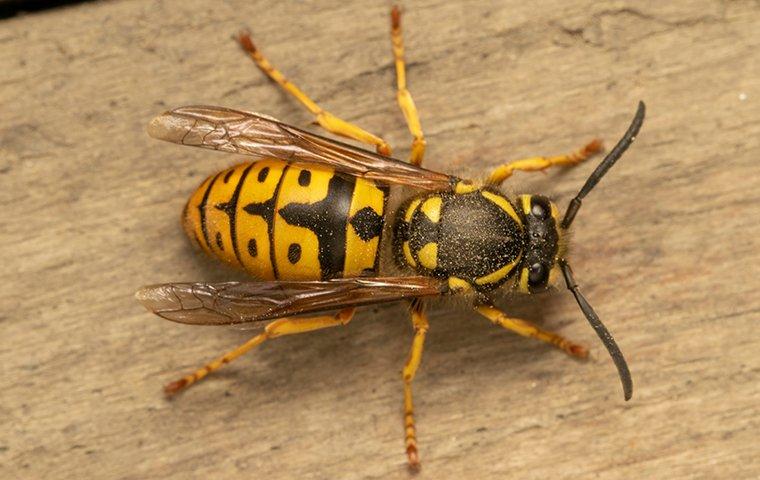Orlando has some of the best weather for enjoying time on the deck or in the yard all year long. However, since wasps love our weather as well, you could find yourself in a dangerous situation in your yard when you least expect it. When you learn how harmful wasps can be to your health, you’ll realize how important it is to keep them away from your property.

A Family Full Of Problems
There are actually three kinds of wasps in the wasp family that will invade Orlando properties: paper wasps, hornets, and yellow jackets. All three of these species of wasps have the separation between their abdomen and stinger that sets them apart from bees. But hornets, yellow jackets, and paper wasps are distinct in many ways.
Yellow jackets are the only type of wasp that will nest in the ground, and they’re also more social. Paper wasps and hornets prefer to nest in high places like on the ceiling of an outdoor deck/porch or up in a tree. While yellow jackets just use a hole in the ground for nesting, paper wasps and hornets will mix their saliva with wood from trees or decks to create their nesting materials.
Noticing a nest around your property is the number one sign of an infestation, but you could put yourself in a lot of danger by trying to get rid of a nest yourself. All three of these wasps are very territorial and are able to signal to other wasps nearby when the nest is threatened. Unlike bees, they have the ability to sting multiple times without injuring themselves.
The combination of multiple stings and wasps that will come to each other’s defense very quickly can create a dangerous situation for anyone who disturbs their nest. Multiple wasp stings can result in a variety of health hazards, most severely anaphylactic shock, which can be fatal.
Four Preventative Measures
Because of the severe health threats, preventing wasps needs to be a priority. You might be attracting wasps onto your property without even knowing it, but adhering to the following four wasp-prevention tips can help decrease your odds of incurring an infestation.
- Proper landscaping: keeping your trees trimmed back and filling in the holes in the lawn can prevent nests in the ground and in the trees. You’ll also want to eradicate any spearmint plants you see, which are the white, puffy flowers that attract wasps.
- Wear shoes in the yard: it can be easy to see an aerial nest, but much more difficult to spot a nest in the ground. Wearing shoes can protect you from a painful encounter.
- Proper food and trash storage: make sure that any food you store outside (such as pet food) is tightly secured. You’ll also need a secure, heavy lid on your outdoor trash cans.
- Limiting sources of sugar: wasps are most attracted to sugar, which is why they invade your barbecues so frequently. They can’t resist a sugary soda. However, if you have a hummingbird feeder full of sugar water, this will attract wasps quickly as well.
When you perform these simple tasks around your property, it can greatly reduce your chances of a wasp infestation. However, wasps will typically do whatever it is that wasps want to do, so there are no guaranteed preventative measures outside of professional help. Plus, it can be extremely dangerous to try and get rid of a wasp nest yourself.
Instead of putting yourself in harm’s way or being afraid to go play in the yard, get the professional assurance you need. For more wasp prevention assistance or for the safe removal of an active nest, contact the professionals at Green Flag Services. We are here to help!
Tags: stinging insects | safe nest removal | orlando pest control |
Request Your Free Inspection
Complete the form below to schedule your no obligation inspection.
I love using natural pest control and reducing the toxins in my home. I have had no pest issues since using Green Flag Services for the past almost two years. Great service and very effective and safe treatments.

Jevon , Florida

